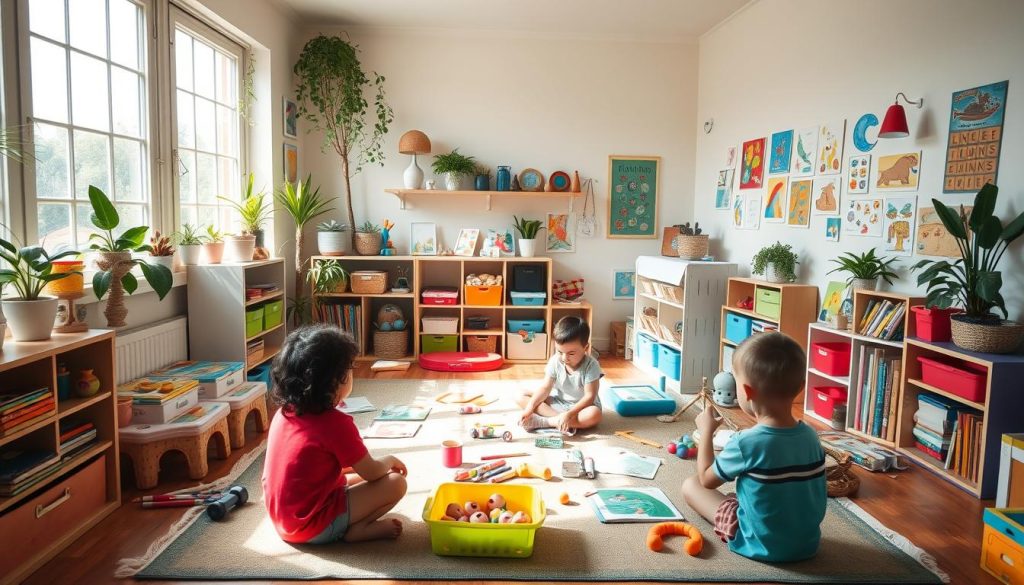In the ever-evolving landscape of education, the rise of home-based education has created a pressing need for skilled and motivated home educators. At its core, effective home learning hinges on specific home educator qualities that not only enhance learning experiences but also inspire a genuine love for discovery in students. Our journey into understanding what sets great home-based educators apart begins with acknowledging the vital educator qualifications they possess. By recognizing the importance of these traits, we can better foster environments that stimulate curiosity and critical thinking, ultimately helping our learners thrive.
Understanding the Role of Home-Based Educators
The landscape of education is evolving, with home-based education trends gaining significant traction in recent years. Families increasingly seek alternatives to traditional schooling, recognizing the many benefits of home schooling. As we explore this growth, we must also consider the unique challenges home-based educators face in this dynamic role.
Why Home-Based Education is Becoming Popular
One primary reason for the rise in home-based education is the desire for personalized learning experiences. Families appreciate having control over curricula and schedules, which allows them to tailor education to fit their child’s unique needs. Key factors influencing this trend include:
- Concerns over traditional school environments
- Access to advanced online resources and technology
- The flexibility to incorporate real-world learning opportunities
These aspects highlight how home-based educators can provide an engaging and effective learning atmosphere that meets individual requirements.
The Unique Challenges Home-Based Educators Face
While there are numerous benefits of home schooling, challenges of home education cannot be overlooked. Educators must develop a diverse range of skills and techniques to ensure learning is effective and enjoyable for their students. Some of these challenges include:
- Managing different learning styles and paces
- Maintaining a structured yet adaptable curriculum
- Finding and selecting appropriate educational resources
Overcoming these obstacles requires resourcefulness and dedication, showcasing the vital role home-based educators play in shaping our children’s future.

Essential Educator Qualifications for Home-Based Learning
As we explore the qualifications necessary for home-based educators, it’s clear that certain criteria significantly enhance the effectiveness of teaching in a home environment. Achieving a solid foundation in academic knowledge equips educators with the essential tools needed to guide their students successfully.
Academic Background and Credentialing
First and foremost, a robust academic background stands as a pillar of effective home schooling experience. Educator qualifications often include degrees in education or related fields, along with relevant home teaching credentials. This educational foundation allows home-based educators to understand various pedagogical theories and apply effective teaching strategies tailored to their students’ needs.
Experience in Educational Settings
Equally important is the value of hands-on experience in educational settings. Home schooling experience can greatly influence an educator’s ability to manage the unique dynamics of home-based learning. Whether through teaching, tutoring, or volunteering, real-world exposure enables educators to develop essential classroom management skills and adapt their approaches based on individual learning styles.
In summary, combining rigorous academic backgrounds with practical experience creates a strong framework for successful home-based educators. The synergy of these qualifications nurtures an enriching learning environment for students.

Characteristics of Successful Home-Based Educators
As we delve into the characteristics of effective educators, it becomes clear that successful home-based educators possess a unique blend of qualities that foster a rich learning environment. Chief among these traits is adaptability, allowing us to adjust our teaching strategies to meet the diverse needs of each learner. This flexibility is essential in home-based learning, where students may have varying learning styles and paces. Educators who can pivot their methods not only maintain student engagement but also ensure that the lessons resonate on a personal level.
Another vital quality we often see in effective home-based educators is patience. Educating at home often involves navigating a range of emotions and challenges, making it crucial for us to remain calm and supportive. This patience not only encourages students to express themselves but also helps in creating a secure space where they feel comfortable to explore and learn. Coupled with strong communication skills, these traits are fundamental in cultivating a successful learning atmosphere.
Furthermore, creativity plays a significant role in our teaching approach. Successful teaching traits include the ability to devise innovative lessons that capture the imagination of our students. By incorporating games, hands-on activities, and interactive discussions, we can transform conventional concepts into enjoyable experiences, showcasing the true qualities of home-based learning. By nurturing open relationships with both students and parents, we facilitate collaboration that greatly enhances learning outcomes and reaffirms the importance of these characteristics in our educator toolkit.




